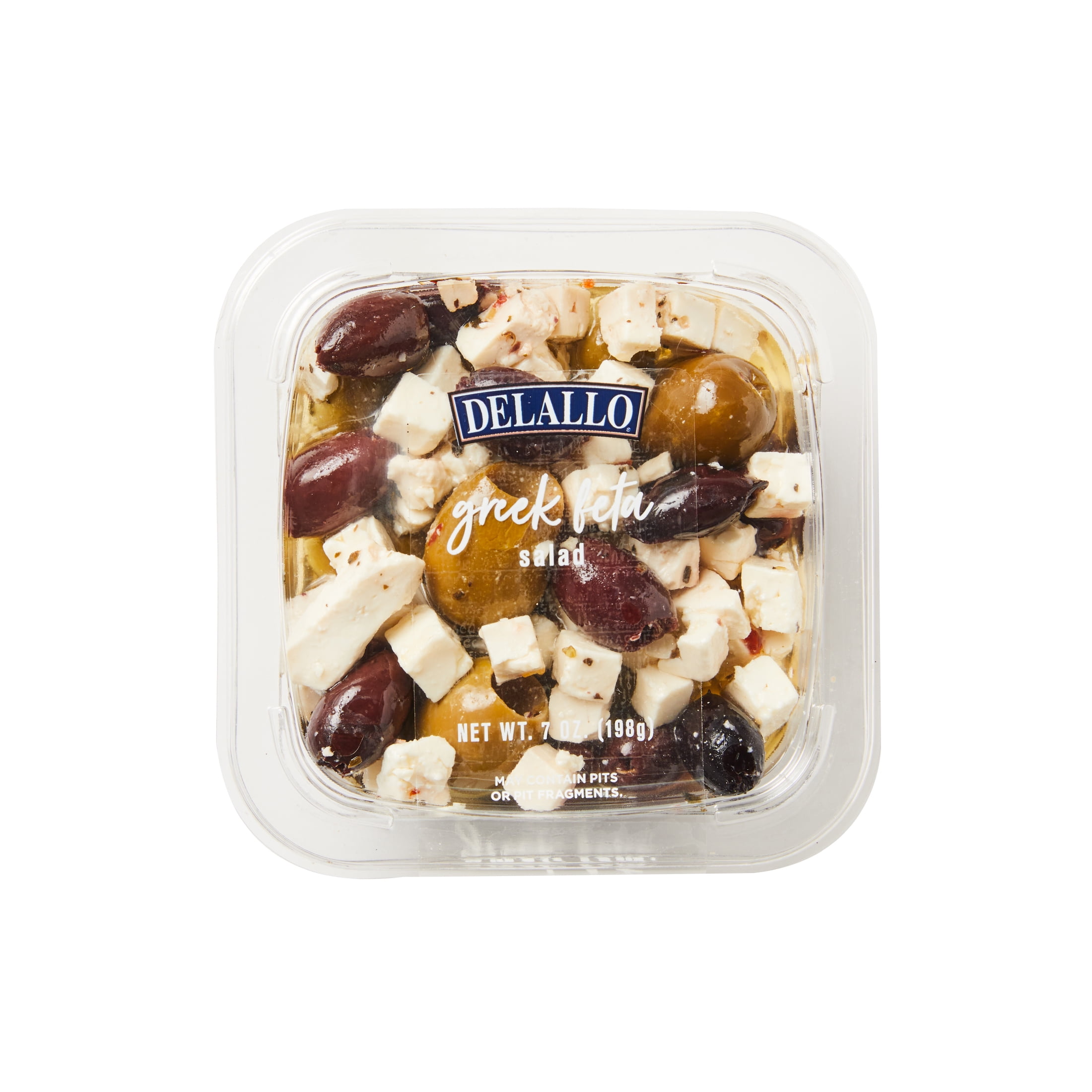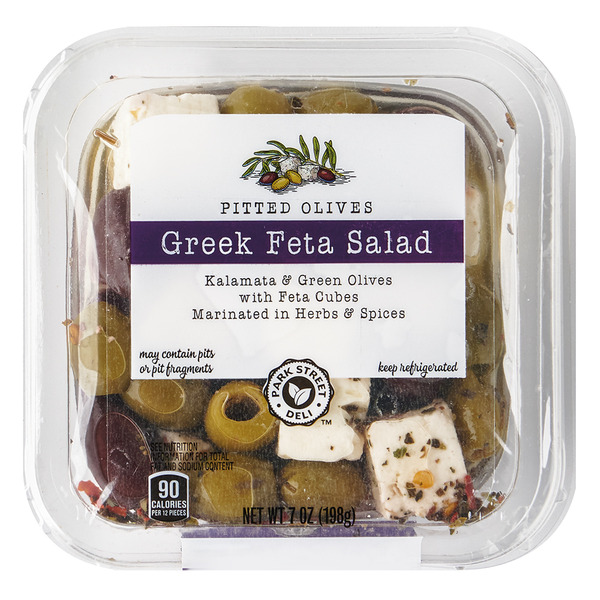SALADS
SIDE DISHES
Greek Salad
Greek Salad, also known as Horiatiki, is a traditional Mediterranean dish originating from Greece, comprising a colorful medley of fresh vegetables, olives, and feta cheese. This vibrant and refreshing salad not only captivates the palate with an array of robust flavors but is also celebrated as a healthy and nutritious option for individuals pursuing healthier lifestyles.
The essential ingredients for a classic Greek Salad include ripe tomatoes, crisp cucumbers, bell peppers, red onions, Kalamata olives, and creamy feta cheese. The salad is then dressed with a simple yet flavorful blend of extra virgin olive oil, red wine vinegar, lemon juice, and a touch of dried oregano, embodying the essence of Mediterranean cuisine.
44%
CARBS
25%
FAT
31%
PROTEIN
Featured Articles
147 Greek Salad Products
Wegmans Regular Greek Santorini Salad with Greek Dressing
Wegmans Large Greek Santorini Salad with Greek Dressing
DeLallo Salad, Feta, Greek
Park Street Deli Greek Feta Salad
Meal Simple by H-E-B Greek Entrée Salad
Member's Mark Greek Salad, priced per pound
Mediterranean Greek Salad With Greek Dressing
Publix Deli Traditional Greek Salad
Meal Simple by H-E-B Greek Family-Size Salad & Red Wine Vinaigrette
WHOLE FOODS MARKET Greek Salad
21 Recipes for Greek Salad
Greek Salad FAQ
What ingredients are needed to make a Greek Salad?
Do I need to cook anything for a Greek Salad?
How should I chop the vegetables for a Greek Salad?
Can I substitute the feta cheese for a vegan cheese?
What is the best way to store leftover Greek Salad?
How can I make the dressing for a Greek Salad?
What are some tips for making a great Greek Salad?
Can I add other ingredients to a Greek Salad?
Expiration & Storage Tips
When does Greek Salad expire?
A fresh homemade Greek Salad is best enjoyed on the day it's made, but it can last in the refrigerator for up to 2 days. Be sure to keep the salad cover and stored in a cool fridge immediately after serving. Prepackaged store-bought Greek Salads, if unopened, can last up to the expiry date indicated on the package, however, once opened, it's recommended to consume within 2-3 days. Freezing Greek Salad is not generally recommended since the vegetables might lose their crunchy texture and freshness. Also, the dressing might separate and get watery after defrosting.
How do you tell if Greek Salad is bad?
There are a few signs that can help you determine if your Greek Salad has gone bad. Firstly, look closely for any signs of mold, change in texture or color of the vegetables. If lettuce or other vegetables seem slimy or discolored, it's a clear indicator that they have spoiled. You may also notice a sour or off smell. This is typically a result of the salad dressing starting to spoil. If you notice any of these signs, it's best to discard the salad right away.
Tips for storing Greek Salad to extend shelf life
• Store your Greek Salad in an airtight container to keep it fresh and prevent it from absorbing odors from other foods in the fridge.
• To prolong the salad's freshness, consider storing the dressing separately and add it only when you're ready to serve.
• Try to avoid cutting up the vegetables too long in advance. The more surface area that's exposed to air, the quicker they will spoil.
• If you're taking the salad to a picnic or potluck, keep it in a cooler with an ice pack to ensure it stays chilled and fresh.
EXPIRES WITHIN
4 - 14
DAYS
Health Info
Macros
5g
CARBS
3g
FAT
3g
PROTEIN
Allowed on these diets
VEGETARIAN
MEDITERRANEAN
GLUTEN FREE
Contains these allergens
MILK
























